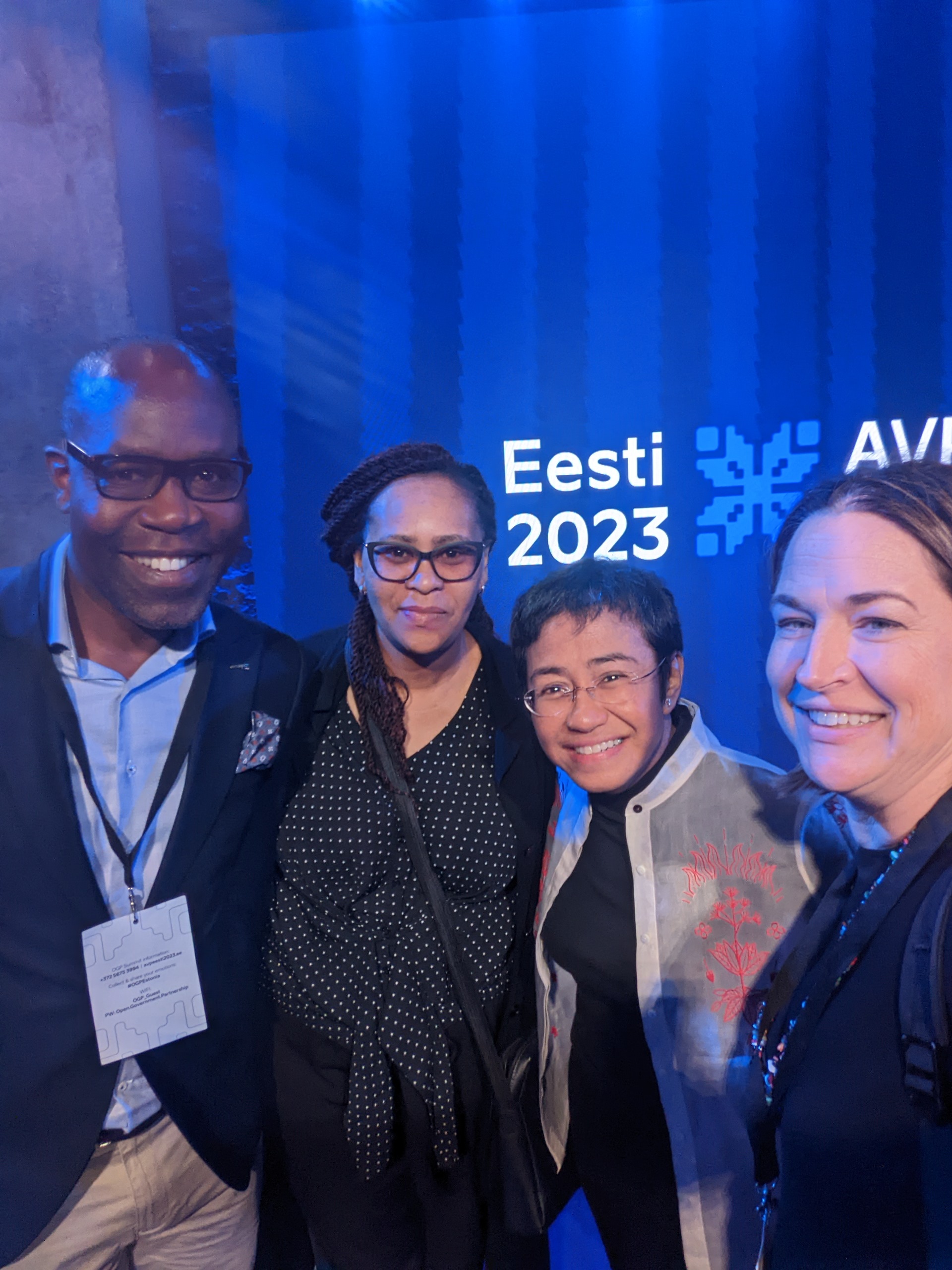Postcard from Tallinn: Digital Democracy and Open Governments

After a beautiful sunset walk in an idyllic Old City, it’s easy to forget just how far Tallinn, Estonia has come since their independence from the Soviet Union in 1991. As pioneers of the power of parliaments over authoritarian rule and e-governance, this is the perfect backdrop for hosting the Global Summit of the Open Government Partnership and the Tallinn Digital Summit this week. NDI is a long-time partner of the OGP and our level of effort was no different this year.
DemTech was happy to join our colleagues and partners from around the world for important conversations around transparency, accountability, and integrity, and for us in particular, how digital tools can both enable and undermine these objectives. Events such as these offer the chance to exchange ideas and best practices with delegations from around the world while looking for new opportunities to work together, but the meetings, working groups, and side conversations can blend together, so here are some key takeaways from my encounters this week.
Hey, governments! Civil Society knows tech! NDI had the opportunity to welcome many parliamentarians in Tallinn and the events were heavily attended by governments. That engagement is great, but I heard over and over again from these participants confidence and a belief that they knew data and tech and needed help from the private sector. Civil society engagement was often thought of as the customer or recipient requiring some, but not deep, consultation. Here’s the reality: All of our efforts to make technology work for democracy will only work if civil society is understood to be an essential partner. At the very same summit, showcased the many ways civic tech organizations are helping to pilot and deploy democratic innovations to improve participatory governance when they are engaged, creating meaningful channels of dialogue between citizens and institutions to solve governance issues in their communities from curbing air pollution, to improving accessibility for people living with disability, to crowdsourcing public input into funding allocation in local municipalities. The world’s best engineers, data scientists, and coders don’t just exist in companies and governments. They are the founders and advocates leading civ tech organizations throughout the world. Governments must know their products will be more successful if civil society is viewed as a full partner.
Civil Society tech talent is broad and deep, but not as connected as we should be. Between the Tallinn Digital Summit and the Open Government Partnership, it was great to catch up with so many partners in civil society and meet new friends working with their governments to implement change that will enable technology to be used to better the lives of people in democratic ways. What was notable was who I did not see. We still have a divide between open data groups and digital rights groups and working more closely together will make us more effective and governments more responsive. Topics like the Global Digital Compact and challenges like disinformation are discussed at both RightsCon and OGP, but few civil society groups have the opportunity to engage in both spaces. It’s a resource and time challenge, certainly, but making sure conversations that happen in Tallinn don’t stay in Tallinn needs to be on our to-do list.
Everyone is worried about generative AI. It’s important that it was only a few months ago that generative AI burst onto the front pages and it’s true that it can take time to wrap our heads around the impact, but this topic was front and center of every discussion. Here are my big concerns I will write more about soon: 1) We need to see the world in terms of Generative AI importers and exporters, and the importers–primarily the majority world–could be at the mercy of systems they do not control 2) journalism is already facing enough problems from authoritarian actors…now generative AI could be scaping their content. I’m not talking about well-known outlets, I’m talking about independent journalist groups worldwide who do not have the power to create new systems to protect their work. This is to say nothing of elections, disinformation, etc. 3) Certainly generative AI can be harnessed for good, but if that was the intention, a week in Tallinn for companies that are leading the conversation would have been a good move.
Parliamentarians are busy, but they need to understand the impact of tech on democracy. As the leaders most empowered to make government accountable to the people, parliamentarians are underutilized when it comes to advancing digital rights and technology for democracy. Around the world, “cybersecurity” and “disinformation” laws are introduced and debated. Civil society’s efforts are often centered around advocacy on these laws or advocacy with ministries and regulators. Deeper engagement to help parliaments get legislation right and strengthen their oversight role is essential to making technology work for democracy. Certainly, turnover and political divisions make it a challenge, but building these systems for the long run are essential to a functioning multilateral system.
Summits like the ones in Tallinn take a lot of preparation and are exhausting and overwhelming. No two people will walk away with the same perspective. So now the real work begins as we reconstruct our takeaways and build this knowledge into the practical tasks ahead. Thank you to the Estonian government for your strong partnership and for your warm welcome!
